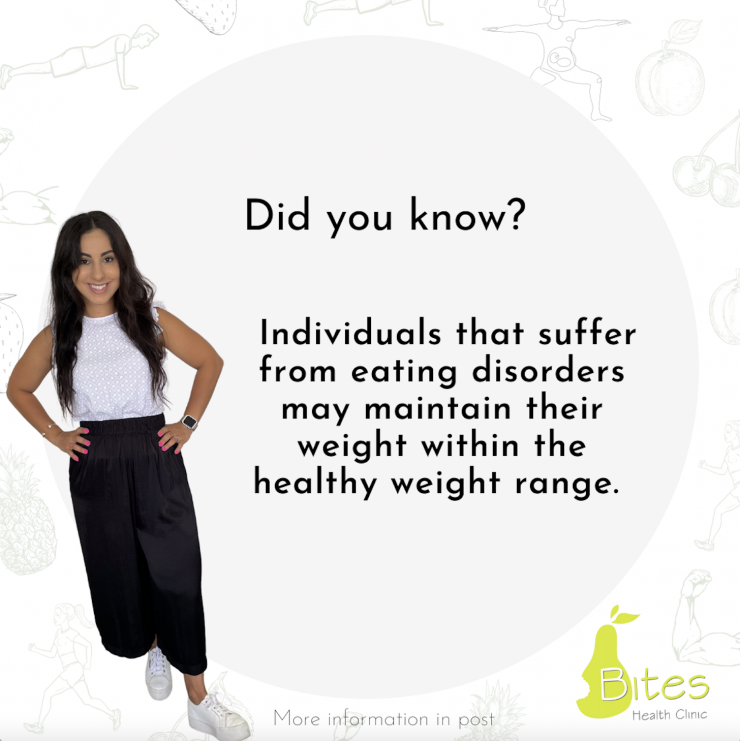
There are a lot of myths surrounding eating disorders, that can undermine the seriousness of the condition:
- Myth: To have an eating disorder you have to be severely underweight.
- Truth: Individuals that suffer from eating disorders may maintain their weight within the healthy weight range or even be overweight or obese. This doesn’t mean that their experience of the disorder is any less serious to someone who is below the healthy weight range.
- Myth: Eating disorders are a cry for attention or a person ‘going through a phase’
- Truth: People with eating disorders are not seeking attention. In fact, due to the nature of an eating disorder a person may go to great lengths to hide, disguise or deny their behaviour, or may not recognise that there is anything wrong.
- Myth: Eating disorders are about vanity.
- Truth: Eating disorders are a serious mental illness. Individuals with eating disorders experience distorted views of their body image and have extreme fears of weight gain, shape, eating and/or body image that can override rational thought. They often understand that their disordered eating is unhealthy but find it very difficult to change their behaviours.
Visit the butterfly foundation for additional resources to support your recovery from an eating disorder: https://butterfly.org.au










